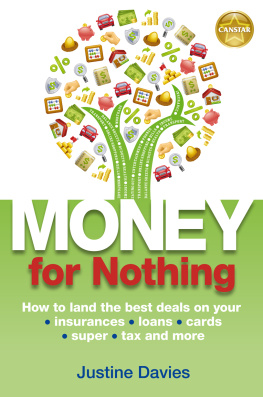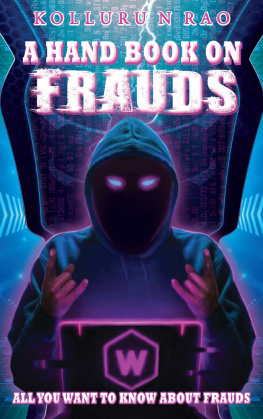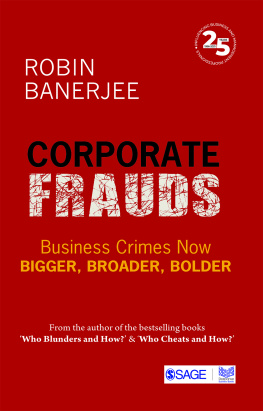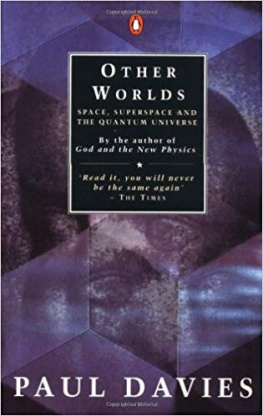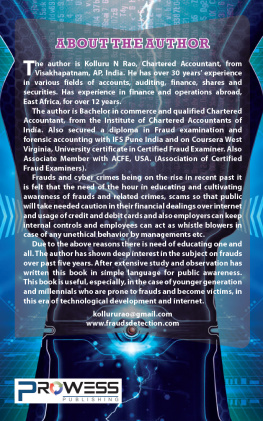Dan Davies - Lying for Money: How Legendary Frauds Reveal the Workings of the World
Here you can read online Dan Davies - Lying for Money: How Legendary Frauds Reveal the Workings of the World full text of the book (entire story) in english for free. Download pdf and epub, get meaning, cover and reviews about this ebook. year: 2021, publisher: Scribner, genre: Romance novel. Description of the work, (preface) as well as reviews are available. Best literature library LitArk.com created for fans of good reading and offers a wide selection of genres:
Romance novel
Science fiction
Adventure
Detective
Science
History
Home and family
Prose
Art
Politics
Computer
Non-fiction
Religion
Business
Children
Humor
Choose a favorite category and find really read worthwhile books. Enjoy immersion in the world of imagination, feel the emotions of the characters or learn something new for yourself, make an fascinating discovery.

- Book:Lying for Money: How Legendary Frauds Reveal the Workings of the World
- Author:
- Publisher:Scribner
- Genre:
- Year:2021
- Rating:3 / 5
- Favourites:Add to favourites
- Your mark:
- 60
- 1
- 2
- 3
- 4
- 5
Lying for Money: How Legendary Frauds Reveal the Workings of the World: summary, description and annotation
We offer to read an annotation, description, summary or preface (depends on what the author of the book "Lying for Money: How Legendary Frauds Reveal the Workings of the World" wrote himself). If you haven't found the necessary information about the book — write in the comments, we will try to find it.
Dan Davies: author's other books
Who wrote Lying for Money: How Legendary Frauds Reveal the Workings of the World? Find out the surname, the name of the author of the book and a list of all author's works by series.
Lying for Money: How Legendary Frauds Reveal the Workings of the World — read online for free the complete book (whole text) full work
Below is the text of the book, divided by pages. System saving the place of the last page read, allows you to conveniently read the book "Lying for Money: How Legendary Frauds Reveal the Workings of the World" online for free, without having to search again every time where you left off. Put a bookmark, and you can go to the page where you finished reading at any time.
Font size:
Interval:
Bookmark:
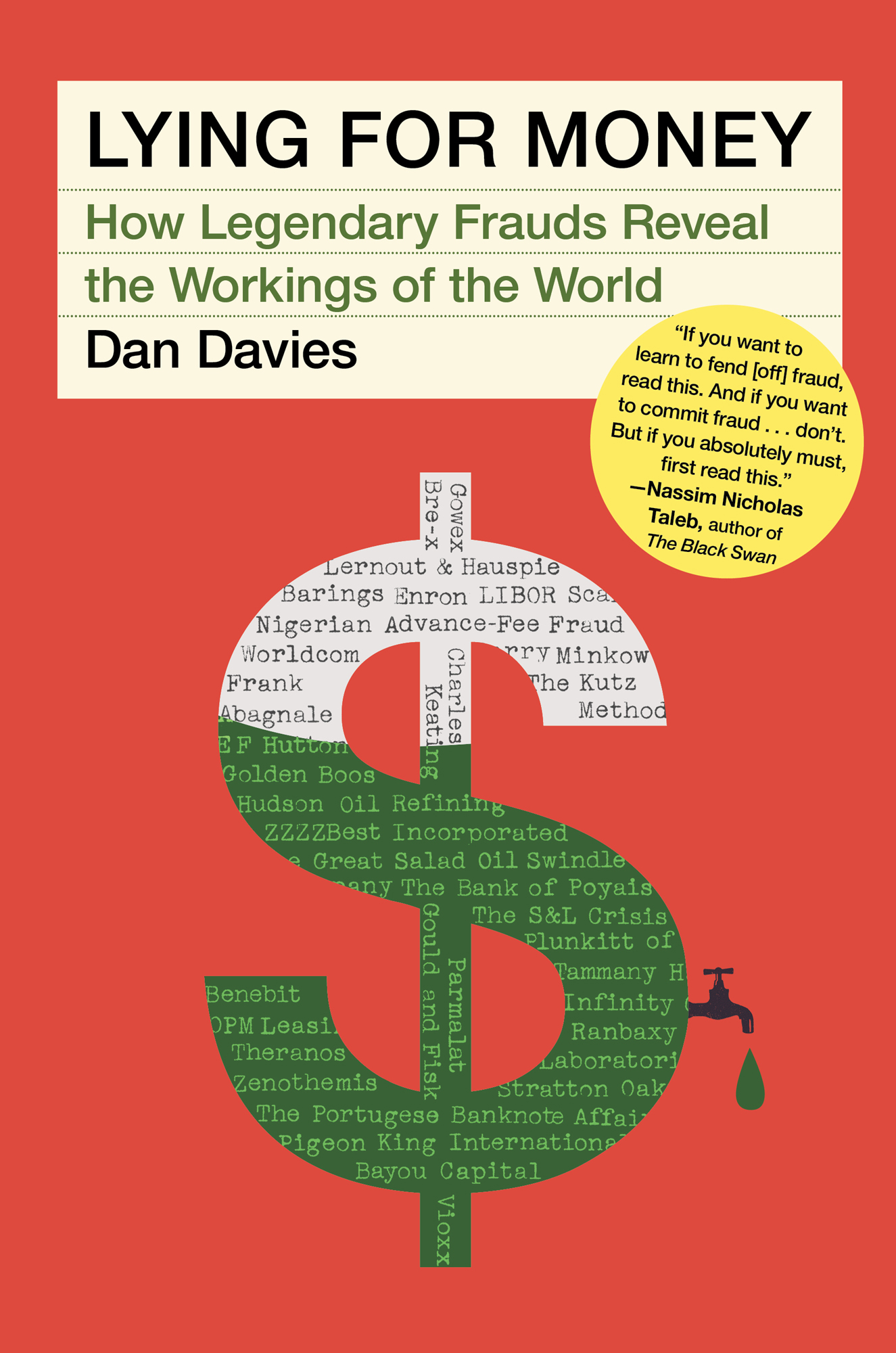


Scribner
An Imprint of Simon & Schuster, Inc.
1230 Avenue of the Americas
New York, NY 10020
www.SimonandSchuster.com
Copyright 2018 by Daniel Davies
Originally published in Great Britain in 2018 by Profile Books
All rights reserved, including the right to reproduce this book or portions thereof in any form whatsoever. For information, address Scribner Subsidiary Rights Department, 1230 Avenue of the Americas, New York, NY 10020.
First Scribner hardcover edition March 2021
SCRIBNER and design are registered trademarks of The Gale Group, Inc., used under license by Simon & Schuster, Inc., the publisher of this work.
For information about special discounts for bulk purchases, please contact Simon & Schuster Special Sales at 1-866-506-1949 or .
The Simon & Schuster Speakers Bureau can bring authors to your live event. For more information or to book an event, contact the Simon & Schuster Speakers Bureau at 1-866-248-3049 or visit our website at www.simonspeakers.com.
Interior design by Wendy Blum
Jacket design by Jonathan Bush
Library of Congress Cataloging-in-Publication Data is available.
ISBN 978-1-9821-1493-0
ISBN 978-1-9821-1495-4 (ebook)
To Tess
I am sorry guys but I have scammed you. I am not going to try to justify it with my reasons, I am just a terrible person. I am sorry for each and every person affected. I am ashamed about the way I have deceived so many people for my own personal gain. For what it is worth, the money is not going to stupid lifestyle enriching purposes. Even though I could likely go on for a few more days making fake promises and feedback I have reached my goal and will lock myself out of my account.
For anyone interested. This started on 1922 December. After that I have not had a single gram of weed or hash in stock. That is all I had to say.
T hat was the message received by customers of 9THWONDER, an online drug dealer on a marketplace known as Evolution when they logged on in January 2015 to check why their merchandise hadnt arrived. The apology and confession were unusual but the scam wasnt. The unlisted websites where contraband is bought and sold over confidential web browsers (known as dark markets, because online criminals are addicted to science-fiction language) have been absolutely rife with frauds from the start.
On the one hand, this might be seen as predictableif you are looking for ideal targets to steal from, participants in illegal drug markets have the attractive property that they cant report you to the police without raising lots of awkward questions about themselves. On the other hand, this obvious fact was not lost on the original designers of the Silk Road (the first such site to get real traction) and its competitors, and the aim of these entrepreneurs was to build fraud protection into the architecture of the system. Many of them produced long and windy political manifestos on this very point, claiming that their virtual online realm was a techno-libertarian paradise that did not need conventional laws.
So how did they all get ripped off?
Actually, at this point I should probably explain why Im so interested in these things. And maybe reassure you that Im not a criminal and this book isnt going to end with a superficially plausible invitation to join in with a pyramid scheme. About half a dozen friends forwarded the news stories about 9THWONDER to me when they came out, and as soon as I read the opening lines, I could guess what had happened, because Im extremely familiar with the pattern. This particular fraud has been around since the Ancient Greeks, in fact, although Im personally most familiar with it from autobiographies of gangsters in Swinging London of the 1960s. I collect fraud stories, because they fascinate me. And they fascinate me because theyre a sort of counter-template. All the things that you miss out on by studying normal economics come sharply back into focus if you take a moment to think about its criminal counterpart.
I made my living for twenty years on the fringes of bank regulation. Early on, while I was young and innocent (and broke), I was a junior economist for the Bank of England, helping to analyze the loopholes and unintended consequences of the ferociously complicated international banking rulebook. Later on, I was older, considerably less innocent, and a lot better paid to help investors make money out of exactly those loopholes. But early on in my career, I noticed that although you might expect something like bank regulation to be one of those gray areas where economics and criminology meet each other, theres actually no overlap at all.
If youve ever had the misfortune to read a lot of bank regulation, youll see that its made of numbersmeasures of capital, measures of risk, probability distributions, and ratios. On the other hand, if youve ever had the misfortune to be involved with a bank going spectacularly bust, youll probably notice that the reasons why everything went wrong usually have very little to do with those numbersthey tend to be very human in nature and made up of varying proportions of incompetence, dishonesty, and bad luck. The reasons for this disconnect took me years to understandtheyre very deep in both psychological and economic terms. Unfortunately, while I wasnt able to understand the problem, nor was I able to keep my mouth shut about it, and before long, me and the Bank of England decided to seek our fortunes separately.
As soon as I got another job, I quickly grew to realize that I would never be all that good at forecasting stock prices or calculating probabilities. So I decided that if I was going to have a career in the competitive world of stock market trading, it would have to be based on things which were impossible to forecast and which werent part of any probability distribution. Luckily for me, shortly after I made that decision Russia defaulted on its debt, the internet bubble popped, and Enron went bankrupt. Also, Nassim Taleb started publishing books that gave a sort of intellectual respectability to the whole project of looking at the implications of unpredictable events.
For my part, and with the support of a couple of far-sighted bosses, I spent the next decade gathering details and stories and trying to build a mental toolkit for living through those strange historical episodes when everything you thought you knew turns out to be untrue. It involved a lot of digging through out-of-print books and reading up on unfashionable management theorists, looking for the gaps between theories and the awkward things that people didnt like to talk about.
Did any of this help, when 2007 arrived and it turned out that the previous decades prosperity had been built on a mountain of lies? Yes and no. Later in the book Ill discuss some of the big frauds where I had front-row tickets. I think my record in spotting them was better than random chance, but maybe not much better. But anyway, back to 9THWONDER and the online drugs fraud.
The mechanics of the dark market scam are almost so simple as to need no explanation: you take money (in this case, electronic money such as bitcoin) on the basis of a promise to send someone illegal drugs, and then you dont send the drugs. The interesting bit is that the controls that were put into the system to rule out this absurdly obvious possibility didnt work.
Font size:
Interval:
Bookmark:
Similar books «Lying for Money: How Legendary Frauds Reveal the Workings of the World»
Look at similar books to Lying for Money: How Legendary Frauds Reveal the Workings of the World. We have selected literature similar in name and meaning in the hope of providing readers with more options to find new, interesting, not yet read works.
Discussion, reviews of the book Lying for Money: How Legendary Frauds Reveal the Workings of the World and just readers' own opinions. Leave your comments, write what you think about the work, its meaning or the main characters. Specify what exactly you liked and what you didn't like, and why you think so.


